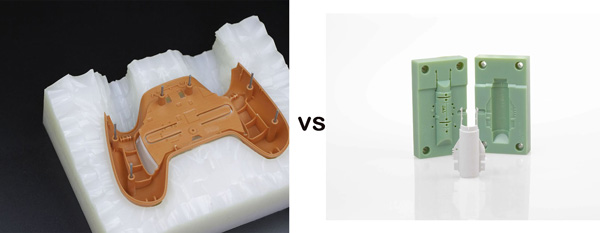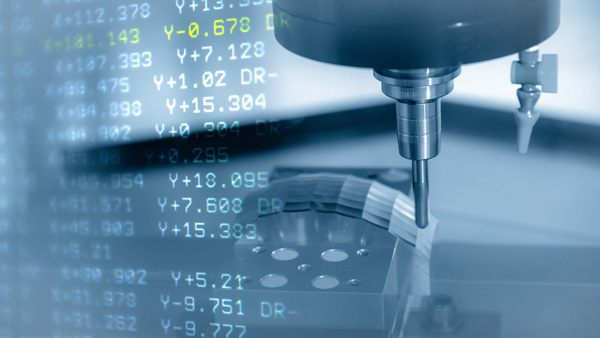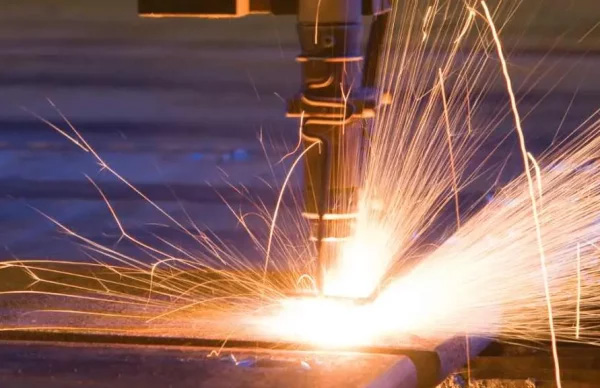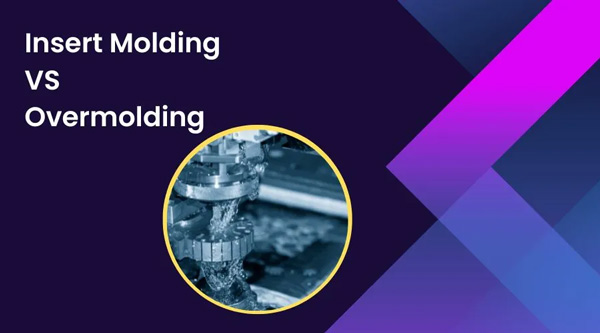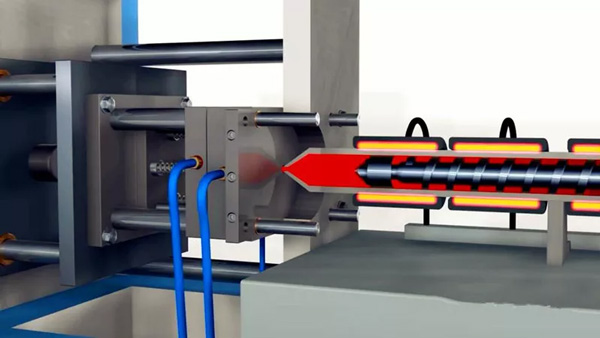The use of 3D printing is increasing day by day in different fields because it increases innovation in creativity, manufacturing, customisation, and part production. So, the scope ranges across various industries, including medicine and fashion.
In this blog, you will see what changes these technologies are going to bring to manufacturing processes in the year 2025 in different industries. So, keep reading!

1) Top 10 Applications and Examples of 3D Printing
3D printing applications provide significant advantages over traditional manufacturing techniques. It is because 3D printing has a fast speed of production and the ability to design unique parts at lower costs.
However, it widens its application area dominantly in medicine as well as automotive components. Let’s discuss the 10 applications and examples of 3D printing in different industries:
- i) Medical
The most important 3D printing application is in the medical sector. However, it enables doctors to design custom instruments and specific models of their patients quickly, efficiently, and at a low cost. Thus, the application enhances care, decreases operational time, and minimizes expenses.

Examples:
- Prosthetics
- Dentures
- Surgical guides
- Bone implants
- Anatomical models
ii) Automotive
Significantly, in the automotive industry, the use of 3D printing in production has become commonplace. Hence, it is used by automakers for prototype development, parts fabrication, and even designing interior components. Moreover, it improves testing while minimising waste.
Examples:
- Engine parts
- Gear knobs
- Custom dashboards
- Lightweight brackets
- Concept car prototypes
iii) Aerospace
In aerospace manufacturing, every single gram is carefully considered. So, the 3D printing technologies aid in creating strong yet lightweight components that enhance fuel efficiency. Additionally, it accelerates the processes of shape and material testing for engineers.
Examples:
- Turbine blades
- Cabin parts
- Satellite components
- Air ducts
- Engine housings
iv) Fashion
Well, another important application of 3D printing is in the fashion industry. Hence, it enables designers to produce bold individual pieces like shoes and accessories that are not easily made using traditional methods.
Examples:
- Dresses
- High heels
- Jewelry
- Eyewear frames
- Custom bags
v) Architecture
You know, 3D printing allows architects to create accurate scale models of complex structures. Moreover, with the help of this modern technology, clients can view a project visually prior to construction. Furthermore, it also enhances planning and design precision.
Examples:
- Model building
- Elements of interior design
- Layouts of landscapes
- Mockups for bridges
- Decorative panels
vi) Education
The applications for 3D printing in the classroom are beneficial for both teachers and students. Thus, it makes lessons more engaging when concepts can be interactive, turning ideas into real objects. Moreover, this technology is useful in STEM fields.
Examples:
- Models related to science
- Prototypes in engineering courses
- Replicas from history classes
- Mathematics tools
- Learning aids for the visually impaired
vii) Consumer Goods
Well, 3D printing can be observed even in the items an individual uses daily. However, with the help of SD printing, businesses can prove ideas quickly and provide tailor-made solutions to their customers.

Examples:
- Phone cases
- Kitchen utensils
- Personalised figurines (toys)
- Domestically placed artistic items
- Custom gifts
viii) Dental
Significantly, the use of 3D printing brings about accuracy as well as ease for the patient in dental care. The good news is that Dentists are now able to make certain devices. Such devices were previously not possible due to time limitations within their office, which streamlines the process.
Examples:
- Braces
- Crowns
- Guides surgically
- Assistants
- Models of gums
ix) Industrial Manufacturing
That question can arise in your mind: What are the applications of 3D printing in large-scale factories, right? Well, there are a lot of 3D printing applications in manufacturing. However, these applications include customising the tools, replacement of parts, as well as fast prototype models.
Examples:
- Jigs for “Assembly”
- tooling components
- Replacement Gears
- Machine housings
- Industrial moulds
x) Food
What are some applications of 3D modelling and printing in real life? Unbelievably, 3D modelling and printing in real life also applies to food. However, Chefs and food technology companies are now using printers to create forms of edibles that are safe to consume.
Examples:
- Chocolate sculptures
- Sugar decorations
- Printed pasta shapes
- Customized snacks
- Personalised snack foods
- Custom cake toppers
2) What makes 3D Printing Popular among Industries?
Well, 3D Printing is used in industries due to an emerging demand for smarter design and production. Let’s explore the top reasons why industries are making this change.

- Faster Product Development
One of the most important factors is speed. With traditional manufacturing, it can take weeks or even months to create prototypes. On the other hand, Companies are now able to make parts using 3D printing technology in hours or days.
However, this method will not only allow for faster testing but also quicker changes, which ultimately leads to cutting down time to launch. You know, in most industries, such as automotive, medical, and even consumer goods, speed gives you a margin.
- Lower Production Costs
The most beneficial factor of 3D printing is the lower production cost. However, there are no expensive tools or moulds necessary for 3D printing, which reduces waste since the material used is only what is needed.
Thus, it is much more economical than traditional methods for small runs and one-off components. Importantly, this is beneficial to custom manufacturers, small businesses, and startups.
- Better Customization
Well, in the world we live in now, individuals seek out better customised items. So, that is exactly the area where modern 3D printing technology excels. However, the good news is that products can be designed according to the individual’s specifications or preferences.
So, from dental aligners to fashion accessories, custom products are produced with greater ease. Thus, these sectors of health care and fashion enjoy such versatility.
- Easy Prototyping and Testing
You have to know every company wishes to test an item before finalising it. So, Rapid prototyping with cost efficiency can be achieved through 3D printing. Hence, problems can be solved and adjustments made immediately when detected early on.
Therefore, this greatly minimises product failure, ultimately leading to the construction of improved products. In addition, this advantage benefits educators as well as engineering teams.
- Local Manufacturing
A question can arise in your mind: How is 3D printing used in manufacturing? Well, 3D printing makes it easier to manufacture goods closer to where they are needed. Hence, this improves quality control and reduces shipping delays. Moreover, during supply chain problems, like a pandemic, this becomes very beneficial.
Hence, in the medical field and industrial manufacturing, having local printers is even life-saving.
- Less Waste, More Sustainability
You know, sustainability is a growing concern for everyone. However, Many traditional approaches are wasteful; they produce unnecessary junk materials. Thus, 3D printing decreases this problem by only using the material required to manufacture a part, which drastically reduces waste.
If you’re focusing on sustainable development goals, then this technology represents a significant step forward.
- Safe, On-Demand Manufacturing
Need something made at a given moment? No issues. There is a 3D printing technology that can manufacture the parts instantly. Thus, this capability proves important during emergency repairs in medical fields or other remote locations where supplies are limited.
Therefore, this restores confidence when time is limited.
- Constant Innovation
Alright! The evolution of 3D printing doesn’t stand still – every day there are better printers, new materials and algorithms developed. So, with this constant advancement, entire industries have access to cutting-edge tools that give them a competitive advantage.
Thus, the scope of 3D printing applications extends from food to fashion – these opportunities keep expanding.
3) Use Koonze Model and get the Best 3D Printing Applications
Alright! When dealing with the Koonsze Model for 3D printing services, you receive quality support from professionals equipped with advanced technologies and speedy services. Here’s why choosing the Koonze model is the best choice:
- Smart Technology Choices
Koonze Model employs several printing methods such as SLA, SLS, FDM, SLM, MJF, DMLS and DLP. However, this range ensures ultra-fine detail reproduction of strong plastic parts and metal components. Most importantly, each technology is designed to match your project’s needs.
- Fast and Reliable Service
Need components faster? Koonze Model 3D printed parts can be provided in a day for most pre-defined templates. Moreover, clear processes coupled with prompt quotations have boosted on-time deliveries to 96%. Thus, this quickness helps you stay ahead of the competition.
- Quality and Precision
Another important factor is that the Parts undergo thorough quality control by IATF16949, ISO 9001, and ISO 13485 certified companies. However, specialised engineers measure critical dimensions, finish, and performance, which ensures that your parts meet exactly the standards.
- Cost-Effective and Scalable
Well, Cost-cutting measures due to an extensive network of affiliated factories while maintaining uncompromised quality lead to reduced prices by the Koonze Model. However, accompanied by an 8000 m² factory, they easily fulfil requirements without unexpected burdens, whether scaling from one prototype up to small batch production.
- Expert Support and Design Help
Surprisingly, with Koonze, you can upload your files and receive DFM feedback prior to demanding your order. So, this feedback will help in avoiding manufacturing problems later. Thus, A dedicated project manager is assigned to support all steps of the process for you.
- Real Results: Showcase Examples
You can consider a medical model that was produced using DLP technology with a resolution of 50 microns and a beautifully smooth surface. Or think about an SLM-manufactured metal component that is capable of aerospace-grade strength. These quotations demonstrate how accurate and effective the parts of the Koonze Model are across industries.
- Easy Collaboration
Starting the process is straightforward:
- Upload your CAD file (STL, STEP, SLDPRT, etc.).
- You will receive a fast quote, usually in one day.
- Fabrication of the part, together with any needed additional processing, is performed along with quality checks.
- The fabricated and processed parts are shipped ready for immediate use. Every submission is secured and kept confidential, ensuring uploaded information is protected.
4) Innovations in 3D Printing: Future Trends and Their Emerging Applications
Alright! The potentials for applications utilising 3D printing technology continue to expand along with the advancements in technology. Many aspects that used to be considered science fiction are gradually transforming into reality.

Let us explore deeper what is on the horizon concerning 3D printing technology and its implications on our future. Let’s dive in:
- Smarter and Faster Printing
Surprisingly, one emerging trend is speed. New machines continue to become faster while maintaining quality output. This means that you will be able to produce working parts in hours instead of days.
At the same time, smarter software is making designing, testing, and printing easier than ever. In addition, AI-enabled systems can propose enhanced designs as well as rectify frequent errors before the actual printing process. Such measures help avoid needless resource expenditure while also reducing waste.
- More Materials, More Possibilities
Currently, the majority of 3D printing applications are done with plastic or metal, serving as the primary materials. However, in the future, we will be able to see both food and human cells being used for 3d printing ceramics and glass.
However, the recent bio-based innovations also enhance sustainability in the production process. This is very advantageous for different industries trying to minimise their negative impact on the environment.
- 3D Printing in Healthcare
You know well that Prosthetics, dental tools, and surgical guides are already being equipped with 3D technology based on their extensive uses in medicine today. Looking ahead from this base allows us even more!
In addition, Researchers are developing technologies to print human tissues and organs. Though this is in preliminary stages, it can transform treatments for chronic illnesses and resolve issues concerning the shortage of donors. You can imagine someday receiving a personalised 3D-printed organ specifically designed for your needs.
- Construction and Housing
In construction, there is something new and exciting. With the help of large-scale 3D printers, entire homes can be constructed in just a few days. In addition to being quick to construct, these structures are also durable and economically priced.
However, the impact of this innovation can be especially necessary for dealing with housing shortages. This is especially true in locations that suffer natural calamities or where low-cost houses need to be available within a short time.
- Aerospace and Automotive Growth
Another emerging application of 3D printing is in the aerospace and automotive sectors, which will take advantage of 3D printing technologies throughout their manufacturing systems.
New materials and designs are helping, making aircraft and vehicles more efficient, lighter, as well as safer. Moreover, Parts can be manufactured at the location where they are needed thanks to on-demand printing, which dramatically saves time and money.
- Fashion and Custom Products
Further advancements in 3D printing technology can be used for personalised products like fashion accessories. So, Shoes, clothing items, and even jewellery are now readily available using 3D printers. With these, production waste is minimised while achieving a perfect fit alongside a flawless appearance.
In addition to being a greener option for our planet, this also allows greater freedom in expressing your style.
- Education and Everyday Life
Well, 3D printing will play a bigger role in schools, homes, and hobby spaces. Kids will learn by building real models. Additionally, Makers and creators will design everything from gadgets to tools from the comfort of their homes.
As printers get cheaper and easier to use, this technology will become part of everyday life.
- A World of New Opportunities
In real life, what can 3D modelling and printing accomplish? The list includes smart packaging, medical devices, food innovation, and even components for buildings.
So, the flexibility and creativity that come with 3D printing are what make it exceptionally powerful. You can solve problems in ways that have always been impossible before.
5) Final Words
Alright! The speed, efficiency, limitless creativity potential, and transformative capabilities of 3D printing are ever-evolving in multiple sectors. However, it is advancing almost every industry, ranging from medicine to construction. Hence, the adoption of 3D printing technology across different sectors raises the demand for quality service and dependable outcomes.
That’s precisely why relying on a model provider makes a difference. Koonze model offers modern 3D printing solutions, rapid response time, and professional guidance. So, Koonze can be the best partner for your next project. You can contact us right now!


